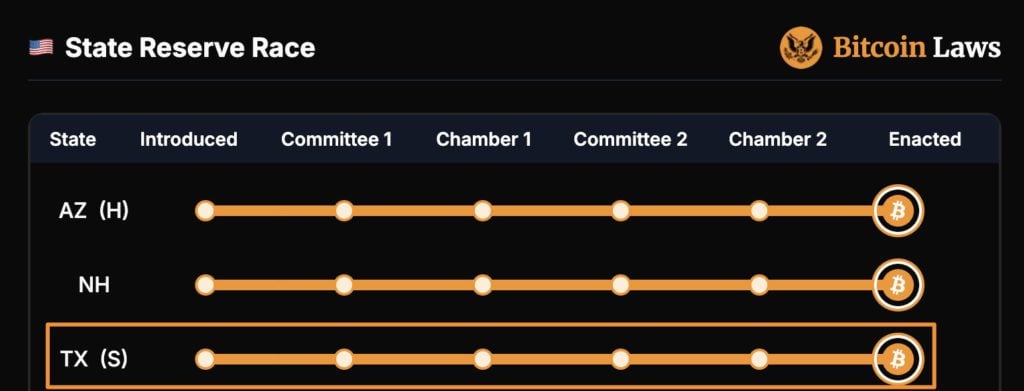The Texas House of Representatives passed Senate Bill 21 (SB 21) with an overwhelming majority of 101 votes in favor and 42 against in late May. On Saturday, Governor Greg Abbott officially signed the bill, making Texas one of the pioneers in promoting cryptocurrency reserves at the state level.
According to The Block, Lee Bratcher, founder and chairman of the Texas Blockchain Committee, predicts that Texas will invest tens of millions of dollars in cryptocurrency.
My feeling is that this fund will reach tens of millions of dollars. Although it sounds like a large amount, it is actually very small for a state the size of Texas...
The Comptroller will use effective investment standards to determine how much to purchase and when, and in reality, no one other than the professional staff of the Comptroller's office has the right to decide.

SB 21 Bill Highlights
To quickly supplement the SB 21 bill highlights: The bill authorizes the Texas Comptroller's office to manage this strategic reserve, allowing state funds to be invested in cryptocurrencies with a market capitalization exceeding $500 billion for 24 consecutive months. Currently, Bitcoin is the only asset meeting this strict standard, with a market capitalization of over $2 trillion.
The reserve is a special fund "outside the treasury," avoiding being allocated to the general revenue account. Funding sources include:
- Legislative appropriations
- Specific income
- Cryptocurrencies obtained through purchases/forks/airdrops
- Investment returns
- Donations from public and private sectors
Technically, the Texas government plans to have the state financial accounting officer custody this fund, protecting Bitcoin through cold wallets. While the investment strategy lacks details, the previous bill plan was to invest up to $500 million in Bitcoin annually.
Additionally, the bill will establish a five-person advisory committee (submitting reports to the state legislature every two years) to mitigate risks from Bitcoin's price volatility or potential threats to public funds.
Texas Aims to Lead Digital Innovation
As the second-largest economy in the United States, with a GDP of approximately $2.7 trillion in 2024, this Bitcoin reserve is seen as Texas's forward-looking strategy for fiscal diversification, combating inflation, and addressing macroeconomic uncertainties.
Supporters believe that establishing a Bitcoin strategic reserve will help combat inflation, diversify financial risks, and strengthen Texas's leading position in digital asset innovation. They expect related enterprises and capital to further flood in. Opposing views focus on price volatility, cybersecurity, and public sector speculation controversies.
Previously, New Hampshire became the first state to enact a Bitcoin reserve law in early May, and while Arizona initially rejected the proposal, it passed a similar bill on May 10th. As time progresses, more state governments are expected to pass related proposals, continuously increasing global consensus on Bitcoin.








